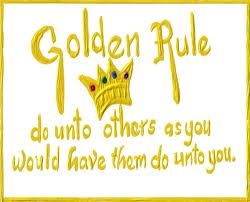
By Ken Ehrenthal
How we become the person we become has been the subject of conjecture and scientific research for many years. Stepping back for a moment we all recognize, what we call societal values and mores. We continually hear about how our “middle class” values have been corrupted by…fill in your own villain. That, of course, is what this essay is about; why are we what we are?
We have heard of “middle class” values. We tend to identify them with our country. We consider ourselves a middle class country. What exactly do we mean? We honor marriage, family, prudence, a semi-religious experience. We remember family: mother, father, children, grandparents, uncles and aunts, nieces and nephews; all arrayed in some kind of hierarchy. We think of the family of the tasteful 50’s TV series, “Father Knows Best.” This was the time when the War had ended and the boys came home. Korea was a passing blip on our radar. We tended our gardens, moved to the suburbs, bought new cars and TV sets. Dad went to work and mom was home to greet us with milk and cookies, when we came home from school.
This is, of course, the story we like to tell and the past we like to remember. But these events and happenings and how we reacted to them affected our values. We don’t learn these values in school. We certainly don’t learn them from books, or even TV or the newspapers. Nor do we learn them at the insistence of our parents. We learn them by watching and listening. We learn our values by the actions of people around us. How the adults talk and act around others.
Growing up in an apartment in New York City, my father worked and my mother stayed home. Every week my mother had a cleaning woman help her clear the place. Thinking back now, I really didn’t understand the need, but there it was. The cleaning lady was a “colored” woman (that’s the term we used then). Being at school all day, I had very little interaction with her. I don’t remember her name or what she looked like. But I have one significant memory of her, or rather about her.
One day I reached for a glass from some shelf in the kitchen. As I carried the glass to the sink, my mother stopped me. Don’t use that glass, Ken (me), that’s the cleaning woman’s glass (I’m sure my mom used her name). What did that simple event, simple admonition tell me about cleaning women or “colored” cleaning women?
In 1958 my wife was teaching school in Connecticut. One day a little girl in her class, came up to her and asked if Johnny, one of her classmates didn’t wash often because he was so dirty looking. Of course, Johnny was a person of color. Surely, that little girl had her values reinforced. She learned that at home and in society. She learned not to condemn people of color as evil, but to her, darker skin equaled dirty. Do you really not suppose that her attitude reflected by that comment changed over the years?
While today, most people would not ask that question, some still react that way unconsciously. I contend that those examples can be multiplied millions of times. Especially when our society through newspapers, television, and other media reinforce our unconscious biases.
Fortunately, the younger generations seem to have fewer racial prejudices’ than those of us over 50. Perhaps due to Civil Rights, there are fewer examples for them to internalize. Interracial dating and partnerships are more mainstream. In my day, we would shun such individuals. Unfortunately, it is the older generation that still controls.
The point I am making is that it makes no difference what we say to our children, it is our behavior they are modeling. If they live in an all white neighborhood and see minorities as menial laborers, or if they always pictures of minorities causing crimes, or living in slum like conditions or homeless, etc. That is the picture they get. Our telling them and/or making rational excuses fall on deaf ears.
The farther we go from actual experiences, especially when we are young, the harder it is to develop empathy. Unfortunately, the societal institutions, especially the religions that preach “the golden rule,” act in many ways in antithesis to them. We all recognize that Sunday is the most segregated day of the week. Why can’t even the worship of a “god” or deity or whatever you call that figure you project your beliefs on, interfere with your fundamental attitudes?
Instead of falling back on some mythological ideal of what we should be, we should be recognizing our shortcomings. All one can ask is that we recognize our prejudices; by doing so, we are working on them. Maybe an acceptance of how we see others might lead to a conscious change in both individual lives and thus a national renaissance. Until we accept ourselves and our fellow humans, warts and all, we will go on unempathic and far from “the golden rule.”




